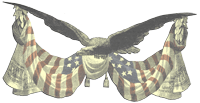


New York Times Review of William G. Beymer's book On Hazardous Service, November 24th 1912
____________
HAZARDOUS SERVICE
On Hazardous Service, Scouts and Spies of the North and South. By William Gilmore Beymer, Illustrated by Howard Pyle and others. Harper & Brothers. $1.80
It is a courageous, daring and clever lot of men and women we read about in William Gilmore Beymer’s book entitled “On Hazardous Service” – the spies and scouts of the civil war. Of these heroes and heroines, some Southerners, some Northerners, Mr. Beymer gives us true stories obtained from original sources, so that it may be said his book is an important addition to the literature of the war, and also that it is a valuable contribution to the history of American bravery and patriotism.
The opening chapter contains a narrative of some of the experiences of Archibald H. Rowand, Jr., one of the two scouts for whom Gen. Sheridan procured from Congress the Bronze Star, which distinguished the wearer as a was one of the thirty or forty scouts of whom Sheridan spoke in his report of the expedition from Winchester to Petersburg. To these men Sheridan tendered his gratitude; he said they had taken their lives in their hands and cheerfully gone wherever they had been ordered: to obtain that essential of success – information.” He closed his reference to them with the statement: ”Ten of these men were lost.” Mr. Beymer got his story of Rowand’s career direct from Rowand. It opens with an account of the man’s first work as a scout in 1862, and closes with an extraordinary scout trip he made in 1865, when he carried dispatches from Sheridan, who was at Colombia, Va., to Grant, who was at City Point, Va.
The next chapter deals with the mysterious case of Col. Williams of the Confederate Army who was hanged as a spy at Franklin, Tenn. All the known details of this case are set forth by Mr. Beymer; but the question which interested the country fifty years ago he does not answer; he is unable to say what Col, Williams was undertaking when he passed within the Federal lines.
Others of whom we get stories are Harry Young, of Rhode Island; Wat Bowie, who served Mosby and other Confederate officers; John Langedon of Connecticut, Timothy Webster and John Beall. Two women figure in the book – Miss Elizabeth L. Van Lew of Richmond, who was a spy for the Federal Government, and Mrs. Rose Greenhow of Washington, who for a time greatly aided the Confederates with the messages she sent from the Capital.

